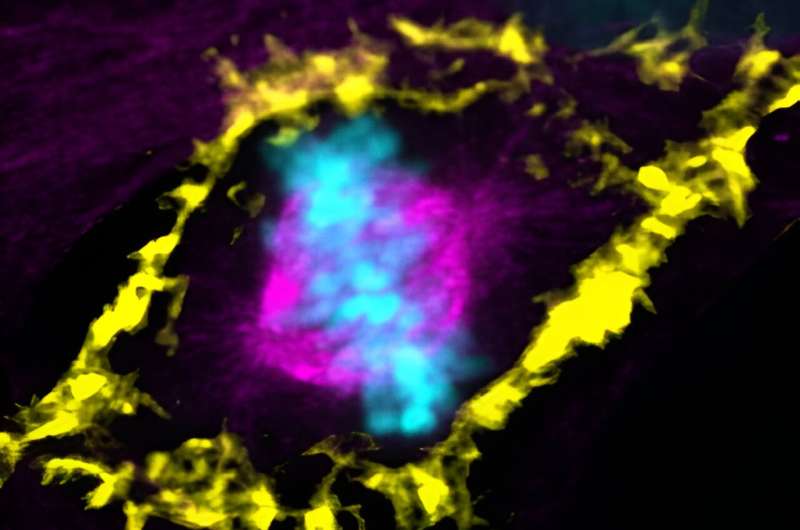Unique characteristics of previously unexplored protein discovered

An international research collaboration has uncovered a new mechanism of the crosstalk between microtubules and actin cytoskeleton during cell division and revealed unique characteristics of the previously unexplored protein FAM110A.
These breakthrough findings significantly enhance the understanding of a critical process that is relevant in the occurrence of developmental disorders and cancer. has been published in the journal Proceedings of the National Academy of Sciences.
The crucial role of FAM110A in the proper formation of spindle actin
Precise segregation of the genetic information into daughter cells is essential in all tissues of our bodies. This process needs to be tightly regulated in space and time to prevent developmental abnormalities. It has been known for decades that chromosomes attach to a bipolar structure called the mitotic spindle that is composed of microtubules.
Mitosis is the process by which a cell divides its nucleus and genetic material to produce two identical daughter cells, ensuring equal distribution of chromosomes. As it proceeds, the attached chromosomes are pulled along the microtubule railways to the daughter cells.
Until recently, scientists believed that actin filaments are needed only for the final step of daughter cell separation and the role of actin cytoskeleton in mitosis has long been neglected. In their latest study, the research team now demonstrates that the previously unexplored protein FAM110A has unique properties that enable it to bind actin and microtubules at opposite ends, specifically at the poles of the mitotic spindles.
Microscopic analysis revealed the formation of highly dynamic actin filaments around the spindle poles which precede and guide the growth of spindle microtubules.
In the absence of FAM110A, proper formation of spindle actin was disrupted, leading to severe impairment in chromosomal segregation. Accordingly, the study discloses a crucial molecular link between the two primary cytoskeletal networks during mitosis. This breakthrough paves the way for future investigations into how FAM110A and related proteins found in human cells prevent genome instability and the development of cancer.
More information: Cecilia Aquino-Perez et al, FAM110A promotes mitotic spindle formation by linking microtubules with actin cytoskeleton, Proceedings of the National Academy of Sciences (2024).
Journal information: Proceedings of the National Academy of Sciences
Provided by University of Freiburg




















